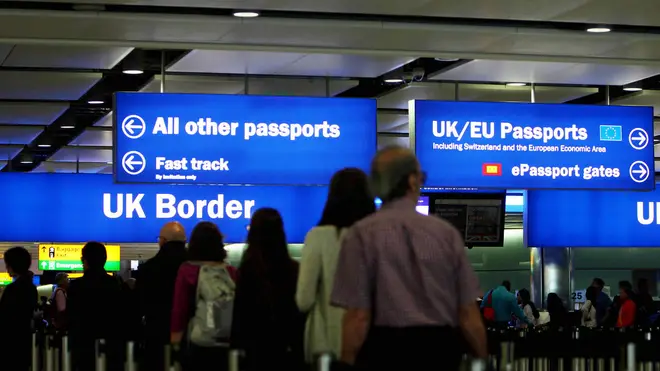
Ali Miraj 6pm - 9pm
12 June 2020, 10:09

The Government will reportedly backtrack on plans to introduce a full border check with the EU from January 1 over fears of the economic impact of Covid-19.
Micahel Gove is expected to announce plans for border operations once the UK's exit from the European Union comes into full effect.
The news comes on the same day it was announced Britain's economy contracted by more than a fifth in the first full month of lockdown, as shops and factories closed and workers were sent home.
On Thursday Cabinet Minister Michael Gove said there were "no circumstances" under which the UK would accept an extension to the Brexit transition period.
Mr Gove said: "The transition period ends on December 31 2020. Under no circumstances will the Government accept an extension.
"Indeed, we have a domestic law obligation not to accept.
"Extending simply delays the moment at which we achieve what we want and what the country voted for - our economic and political independence."
Talks are underway between the UK and the EU as both sides attempt to reach a deal on trade. However, neither side is entirely happy with certain propositions from the other.

EU Fact-Check: Is 40% Of Our Trade From EU?
The UK had committed to introduce import controls on EU goods in the new year, but ministers are now expected to adopt a more flexible approach to prevent the departure compounding the chaos from Covid-19.
A Government source said: "We recognise the impact that coronavirus has had on UK businesses, and as we take back control of our laws and our borders at the end of this year, we will take a pragmatic and flexible approach to help business adjust to the changes and opportunities of being outside the single market and the customs union."
Mr Gove will have the second joint committee agreed under the Withdrawal Agreement with European Commission vice president Maros Sefcovic on Friday, which is due to close at around midday.
UK sources said that unless both sides agree to another such meeting before the end of July, it will be the last opportunity to request an extension to the transition period.
Boris Johnson has repeatedly insisted he will not ask for a delay, despite businesses and critics warning of the dangers of a departure without a trade agreement in place.

Meg Hillier question to Boris Johnson at the Liaison Committee
A Downing Street spokesman said: "The UK and the EU have agreed an intensified timetable for FTA negotiations in July.
"This new process will involve a mix of formal negotiating rounds and smaller group meetings, both in London and Brussels assuming public health guidelines enable this."
The pace of talks will be scaled up so negotiators will meet in each of the five weeks between June 29 and July 27, No 10 said.
The UK's 14-day quarantine period for new arrivals should not hinder the talks in its current form, with the rules having an exemption for those on official visits such as negotiations.
The new details came after the fourth round of negotiations failed to reach a breakthrough last week.
EU chief negotiator Michel Barnier lamented there having been "no significant areas of progress" as he accused the UK of having "backtracking" on the agreed political declaration.
His counterpart in Downing Street, David Frost, said they would have to "intensify and accelerate" the process if there was to be any chance of an agreement.
Both sides also said the remote meetings had reached their limit and that face-to-face meetings would be needed in order to progress.